Filter by
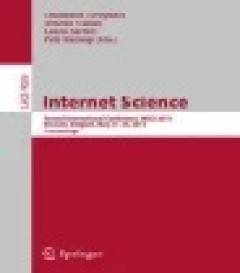
Internet Science: Second International Conference, INSCI 2015, Brussels, Belg…
This book constitutes the proceedings of the Second International Conference on Internet Science, INSCIE 2015, held in Brussels, Belgium, in May 2015. The 10 papers presented were carefully reviewed and selected for inclusion in this volume. They were organized in topical sections named: internet and society; internet and governance; and internet and innovation.
- Edition
- -
- ISBN/ISSN
- 978-3-319-18609-2
- Collation
- -
- Series Title
- -
- Call Number
- -

Structure and Reactivity of Coal
This book provides insights into the development and usage of coal in chemical engineering. The reactivity of coal in processes such as pyrolysis, gasification, liquefaction, combustion and swelling is related to its structural properties. Using experimental findings and theoretical analysis, the book comprehensively answers three crucial issues that are fundamental to the optimization of coal …
- Edition
- 1
- ISBN/ISSN
- 978-3-662-47337-5
- Collation
- IX, 413
- Series Title
- -
- Call Number
- -

Structure and Multiscale Mechanics of Carbon Nanomaterials
This book provides a broad overview on the relationship between structure and mechanical properties of carbon nanomaterials from world-leading scientists in the field. The main aim is to get an in-depth understanding of the broad range of mechanical properties of carbon materials based on their unique nanostructure and on defects of several types and at different length scales. Besides experime…
- Edition
- -
- ISBN/ISSN
- 978-3-7091-1887-0
- Collation
- VII, 226
- Series Title
- -
- Call Number
- -

Structure and Function of Mountain Ecosystems in Japan
The purpose of this book is to summarize new insights on the structure and function of mountain ecosystems and to present evidence and perspectives on the impact of climate change on biodiversity. This volume describes overall features of high-mountain ecosystems in Japan, which are characterized by clear seasonality and snow-thawing dynamics. Individual chapters cover a variety of unique topic…
- Edition
- -
- ISBN/ISSN
- 978-4-431-55954-2
- Collation
- VII, 173
- Series Title
- -
- Call Number
- -

Internet Optical Infrastructure: Issues on Monitoring and Failure Restoration
This book covers the issues of monitoring, failure localization, and restoration in the Internet optical backbone, and focuses on the progress of state-of-the-art in both industry standard and academic research. The authors summarize, categorize, and analyze the developed technology in the context of Internet fault management and failure recovery under the Generalized Multi-Protocol Label Switc…
- Edition
- -
- ISBN/ISSN
- 978-1-4614-7738-9
- Collation
- -
- Series Title
- -
- Call Number
- -
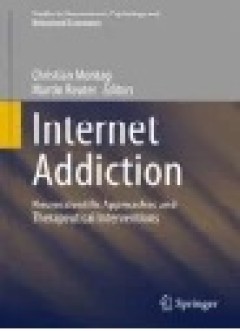
Internet Addiction: Neuroscientific Approaches and Therapeutical Interventions
This work is subject to copyright. All rights are reserved by the Publisher, whether the whole or part of the material is concerned, specifically the rights of translation, reprinting, reuse of illustrations, recitation, broadcasting, reproduction on microfilms or in any other physical way, and transmission or information storage and retrieval, electronic adaptation, computer software, or by…
- Edition
- -
- ISBN/ISSN
- 978-3-319-07242-5
- Collation
- -
- Series Title
- -
- Call Number
- -
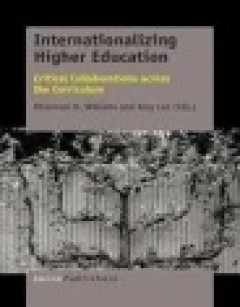
Internationalizing Higher Education : Critical Collaborations across the Curr…
Higher education is facing unprecedented change as today’s graduates need particular skills, awareness, and knowledge to successfully navigate a complex and interconnected world. Higher education institutions and practitioners are under pressure to be attentive to internationalization initiatives that support increasingly diverse student populations and foster the development of global citize…
- Edition
- -
- ISBN/ISSN
- 978-94-6209-980-7
- Collation
- -
- Series Title
- -
- Call Number
- -
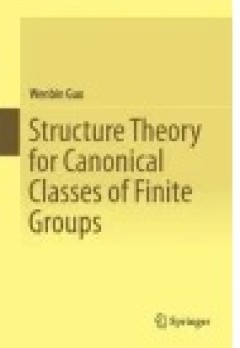
Structure Theory for Canonical Classes of Finite Groups
This book offers a systematic introduction to recent achievements and development in research on the structure of finite non-simple groups, the theory of classes of groups and their applications. In particular, the related systematic theories are considered and some new approaches and research methods are described – e.g., the F-hypercenter of groups, X-permutable subgroups, subgroup functors…
- Edition
- -
- ISBN/ISSN
- 978-3-662-45747-4
- Collation
- -
- Series Title
- -
- Call Number
- -

Structure Determination of HIV-1 Tat/Fluid Phase Membranes and DMPC Ripple Ph…
The second part is a rigorous investigation of an enigmatic phase in the phase diagram of the lipid dimyristoylphosphatidylcholine (DMPC). The ripple phase has fascinated many researchers in condensed matter physics and physical chemistry as an example of periodically modulated phases, with many theoretical and simulation papers published. Despite systematic studies over the past three decades,…
- Edition
- -
- ISBN/ISSN
- 978-3-319-22210-3
- Collation
- -
- Series Title
- -
- Call Number
- -
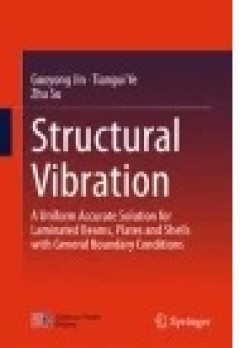
Structural Vibration
This book develops a uniform accurate method which is capable of dealing with vibrations of laminated beams, plates and shells with arbitrary boundary conditions including classical boundaries, elastic supports and their combinations. It also provides numerous solutions for various configurations including various boundary conditions, laminated schemes, geometry and material parameters, which f…
- Edition
- -
- ISBN/ISSN
- 978-3-662-46364-2
- Collation
- -
- Series Title
- -
- Call Number
- -
 Computer Science, Information & General Works
Computer Science, Information & General Works  Philosophy & Psychology
Philosophy & Psychology  Religion
Religion  Social Sciences
Social Sciences  Language
Language  Pure Science
Pure Science  Applied Sciences
Applied Sciences  Art & Recreation
Art & Recreation  Literature
Literature  History & Geography
History & Geography